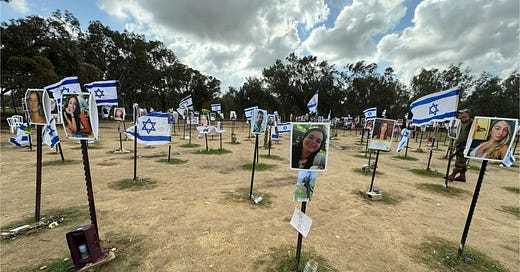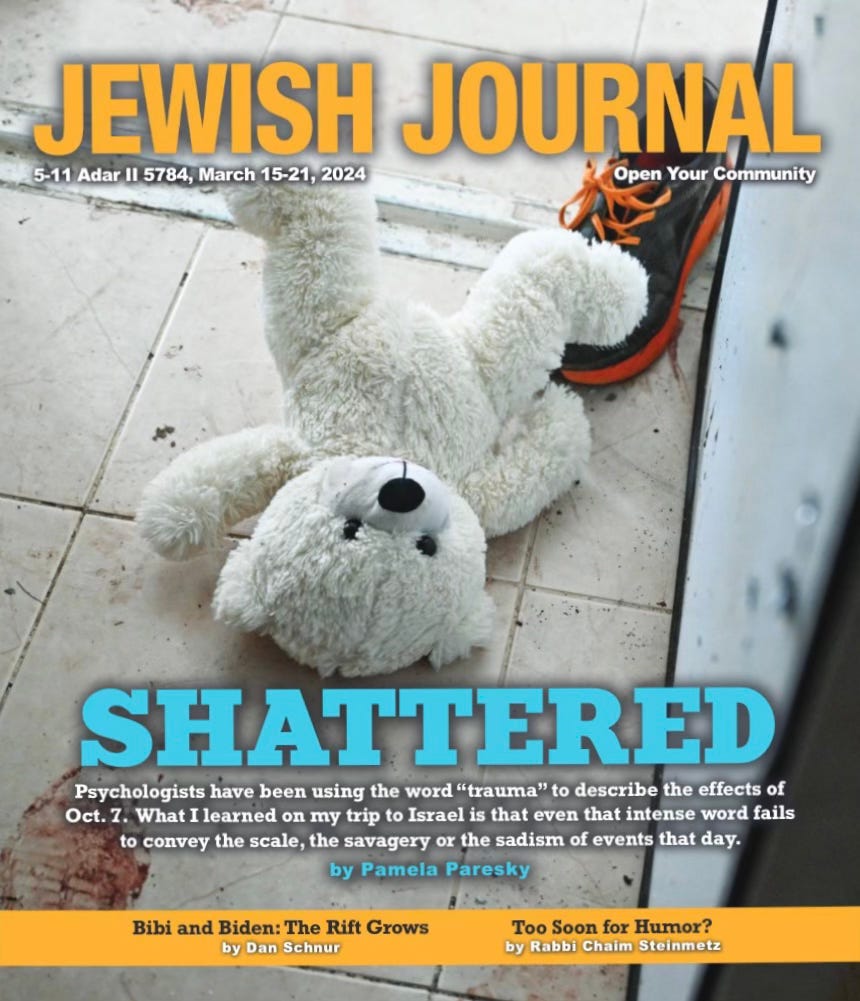History will remember Oct. 7 as the Second Shattering
The Black Sabbath of Oct. 7 is the Kristallnacht of the 21st Century.
Ever since October 7, I keep finding myself wondering whether 85 years ago, Jews and others who rejected “Anti-Semitism” felt something similar to what many of us are experiencing now — the feeling that the world’s reaction can’t possibly be real; that among the “Anti-Zionists,” surely the ignorant must be a much larger group than the malign; that if we speak with equanimity and logic, the world can’t help but see the difference between truth and conspiracy theory, legitimate criticism and blood libel, unintentional tragedies of war and genocide…
And I constantly wonder whether we’re deluding ourselves.
It’s easy to forget that “Anti-Semitism” was a popular political movement, and wasn’t thought to be a form of prejudice by its adherents. Wilhelm Marr, who popularized the term “Anti-Semitism,” claimed that his book, which promoted wild anti-Jewish conspiracy theories, was “written without a trace of religious prejudice,” and was merely about “cultural and historical facts.”
I’m also reminded of the way the son of Holocaust survivors described his parents’ reaction to Kristallnacht — the night of shattered glass: “They couldn't comprehend it.”
After 8 weeks in Israel interviewing survivors, soldiers, trauma specialists, and others, my first cover story in the Jewish Journal is out in print. (If you’re in the LA area, you can get a physical copy.) The beginning is excerpted below. To read the rest online, there are two versions. The shorter version was published at the State of Tel Aviv, a fantastic weekly newsletter and podcast — one I highly recommend — by Vivian Bercovici, the former Canadian Ambassador to Israel. The full version in the Jewish Journal includes historical context and other commentary. (To skip the preview and go straight to the full article, click the button here.)
Shattered
Dispatch from Israel
March, 2024
When Israelis speak about Oct. 7, they frequently say “there are no words.” But one word they consistently use is “shattered.”
Israeli psychologists have been treating severe trauma, complex trauma and collective trauma. The word “trauma,” however, fails to convey the scale, the savagery or the sadism of events that day. The term does not encompass the complex mix of disorientation, anguish, emotional overload and the experience of utter brokenness after the deadliest day for Jews since the Holocaust.
There is no word for the shock felt by Jews around the world when Israel was suddenly and without warning attacked by thousands of rockets targeting civilians from the north to the south and from the river to the sea. There is no word to describe what it is like to be a Jew kidnapped by terrorists indoctrinated since early childhood to believe that murdering Jews is rewarded in the afterlife. Or to know that the people you love are in the hands of terrorists who delight in rape, torture and slaughter; who enjoy forcing parents and children to watch as they inflict horrors on loved ones.
There is no word to convey the terrifying ordeal suffered by survivors of the attempted genocide that Hamas perpetrated on Oct. 7. There is no word that communicates the panic, betrayal, horror and distress of those who hid for hours waiting for help to come, reading WhatsApp messages about terrorists inside their neighbors’ houses. Hearing terrorists break into their own homes. Hearing the screams of injured and dying friends and relatives. Hearing sounds of gunfire and exploding RPGs punctuated by ecstatic shouts of “Allahu Akbar.” All the while knowing they were being hunted.
Everyone in Israel is just one or two degrees of separation from someone who was murdered, injured or kidnapped on Oct. 7. And everyone knows someone who sped to the rescue that day, many of whom never returned.
There is no word to describe the grief of a country still holding its breath while more than a hundred hostages remain in Gaza, and while hundreds of thousands of soldiers, many in their teens and early 20s, go to battle. Some returning badly injured. Some returning to be buried.
More to come…






Powerful and well written piece Pamela, I have shared this. Best,
Thank you, Ed.